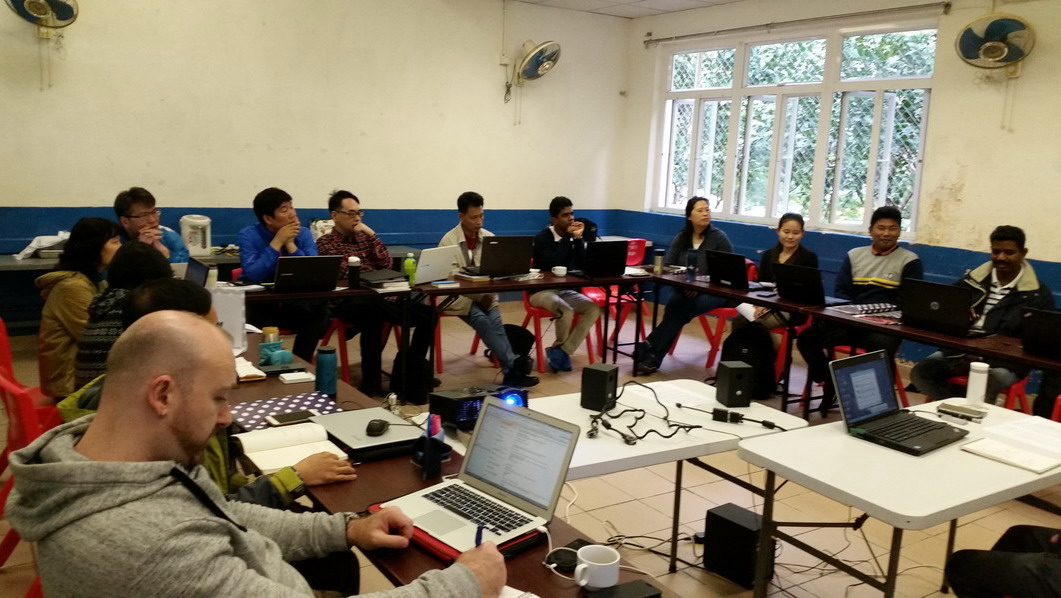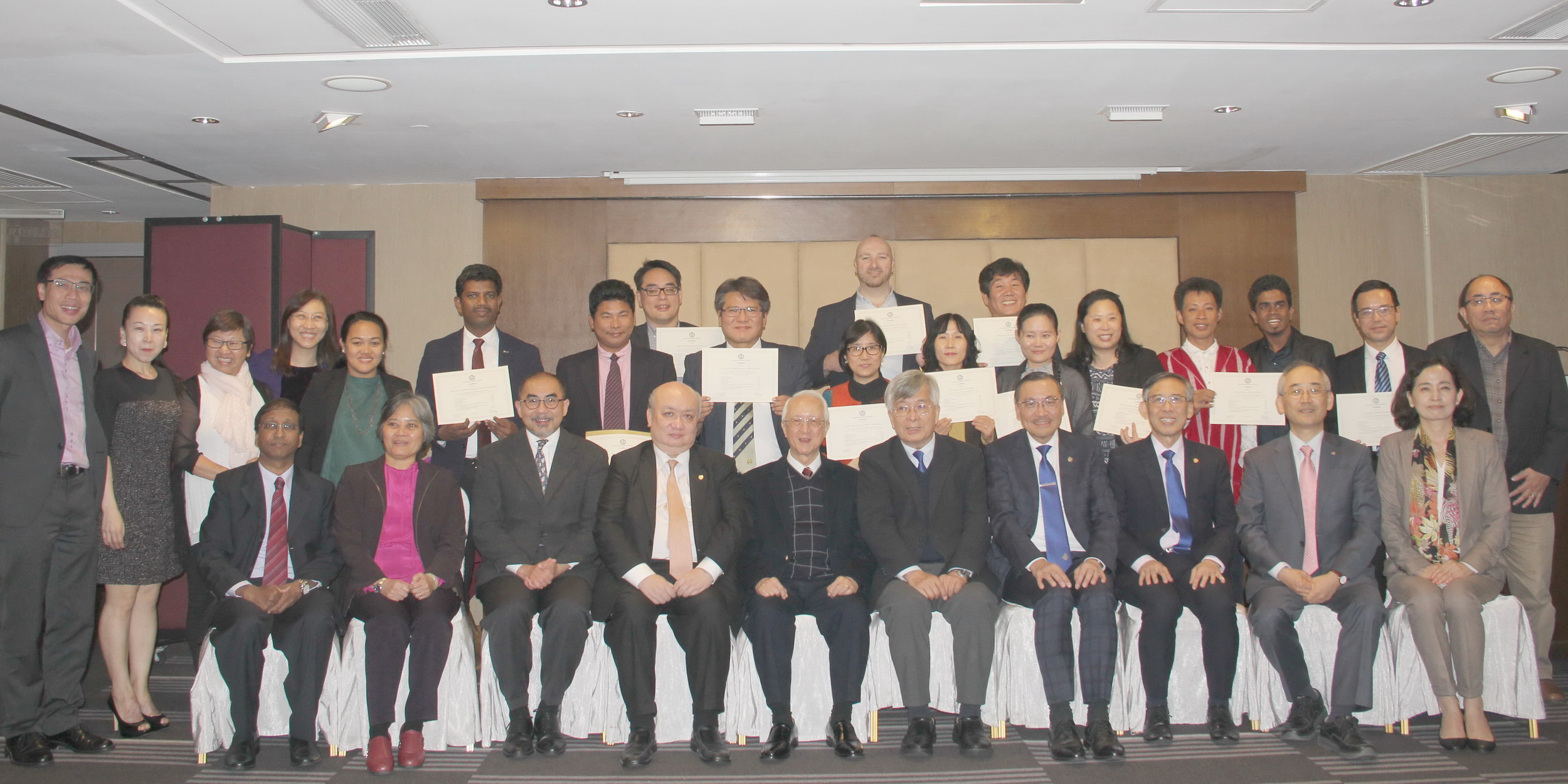The 34th Advanced Studies Program 2016
The 34th Advanced Studies Program of APAY took place at Wu Kwai Sha Youth Village, Hong Kong from 8th November till 3rd December 2016. This year 13 participants from YMCAs of Bangladesh, China, Hong Kong, India, Japan, Korea, Myanmar and Sri Lanka participated at the Advanced Studies Program. The Welcome Dinner of the 34th ASP was held on 9th of November, hosted by the YMCA of Hong Kong.
Dr. David Suh, Dr. Bart Shaha, Max Ediger, Dr. Hope Antone, Nam Boo Won, Beng Seng Chan and Duncan Chowdhury had conducted various sessions of the ASP. The topics dealt at the program were (i) YMCA Mission, (ii) Contextual Theology, (iii) Social Analysis, (iv) Good Governance, (v) Social Economy, (vi) YMCA as a Movement and as an Institution, (vii) Gender Mainstreaming, (viii) Movement Strengthening (ix) Organizational Review, (x) Strategic Planning, (xi) Global Citizenship Education, (xii) Alternative Tourism and (xiii) Sustainable Development Goals. The participants also had spent two days for a spiritual retreat at Ignatian Spiritual Center at the Cheung Chau Islands, Hong Kong.
At the end of the program, each of the participants had to write a Re-Entry Plan about their understanding and learning at the Advanced Studies Program and also chalk out a new program for their respective YMCAs based on the teachings of ASP.
The Graduation Dinner of the 34th Advanced Studies Program was held on 2nd of December hosted by the Chinese YMCA of Hong Kong. Each of the participants was awarded with course completion certificates by APAY.
We hope and pray that the participants shall be able go back to their respective YMCAs with a renewed perspective about the mission of the YMCA in today’s context and work to put that into practice in their YMCA programs.
~ Duncan Chowdhury, Executive Secretary
Conference on Contemporary Christian Leadership
The APAY Regional Conference on Contemporary Christian Leadership was held during 19 -21 November 2016 at Wu Kwai Sha Youth Village, Hong Kong with a participation of about 30 delegates from 17 countries of the Asia Pacific. The theme of the conference was “Ecumenical Leadership in the Present Day Milieu.” The objective of the conference was to re-visit the calling of Jesus Christ, in terms of being his disciples in realizing His ministry in the contemporary world; to search for the meaning of Christian leadership and learn how to put it into practice in our daily life; to review the mission of the YMCA, in terms of facing the present day challenges of the world, especially to bring peace, harmony and sustainability among the nations and to understand deeply the biblical interpretation of Christian Leadership from gender perspective.
The delegates at the conference were challenged to consider the core-components of responsible and effective ecumenical leadership and be proactive for working for peace and justice and effectively respond to the injustices of the society.
Dr. David Suh, former President of the World Alliance of YMCAs presented the keynote address with the theme “Clarion Call for God’s Revolution: Ecumenical Leadership for Social Transformation in Today’s Context.” Dr. Bart Shaha, former Secretary General of the World Alliance of YMCAs presented his paper titled “Christian Discipleship in Today’s World – A Reflection”. Professor Wai Ching Wong presented a paper on “A Gender Perspective of Christian Leadership” and Max Ediger, the coordinator of Interfaith Cooperation Forum, presented a paper titled, “The Core Components of Ecumenical Leadership for Building a Culture of Peace”. The respondents on these presentations amongst the participants were James Choi, Dr. Song Indong, Hiromi Nagao and Lee, Yun-Hee.
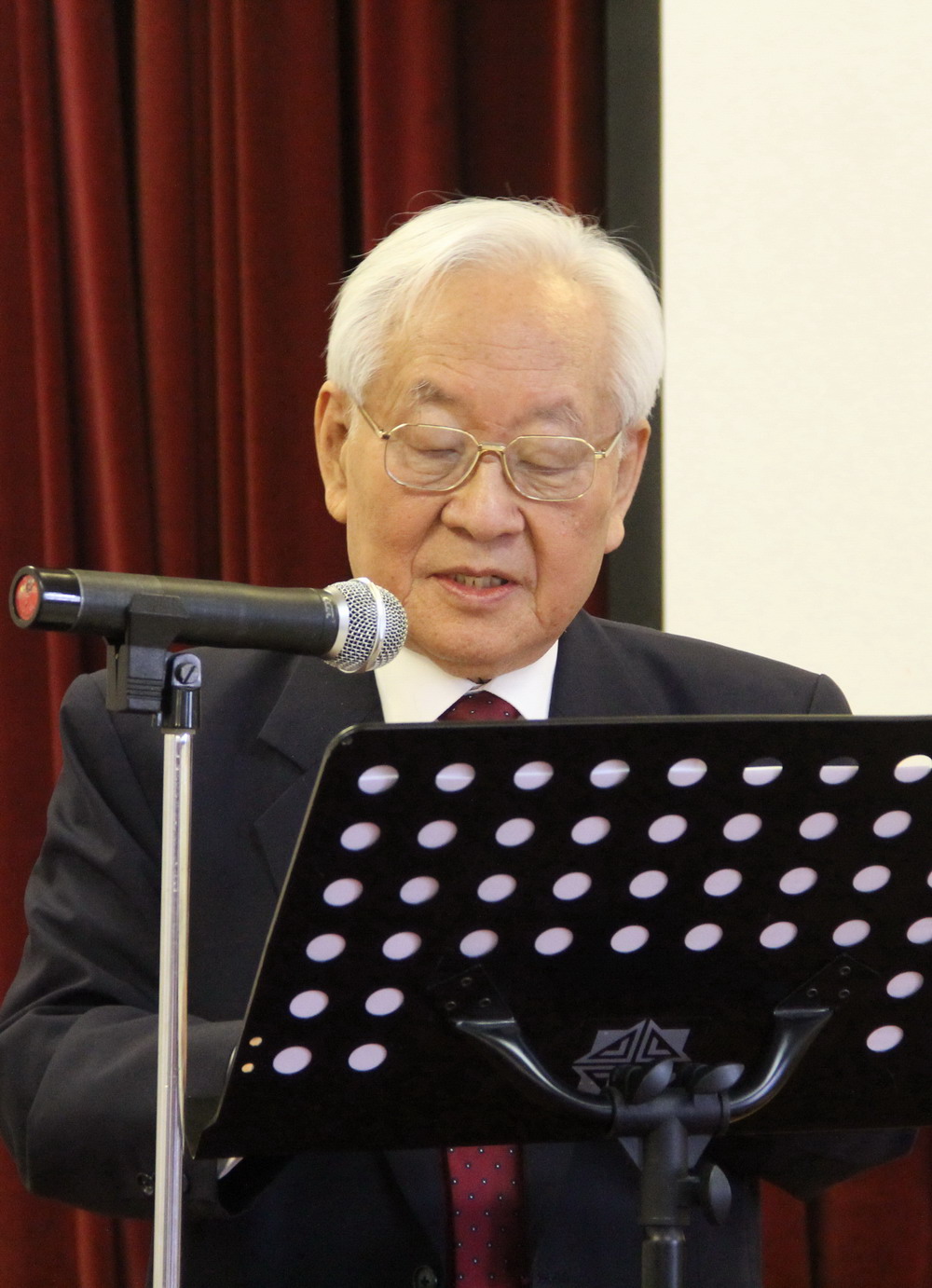 |
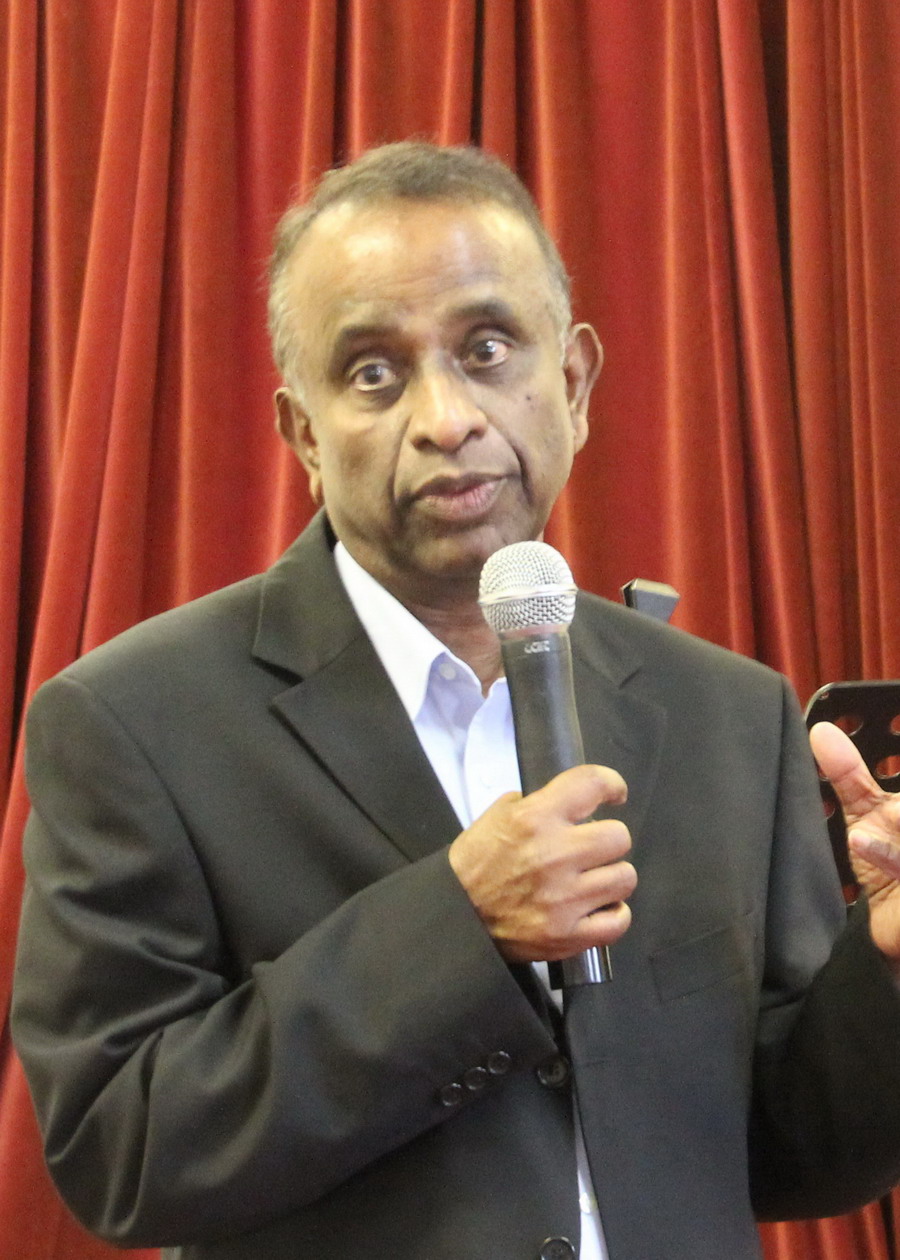 |
| ↑ Dr. David Suh presenting his keynote address.
|
↑ Dr. Bart Shaha presenting his paper.
|
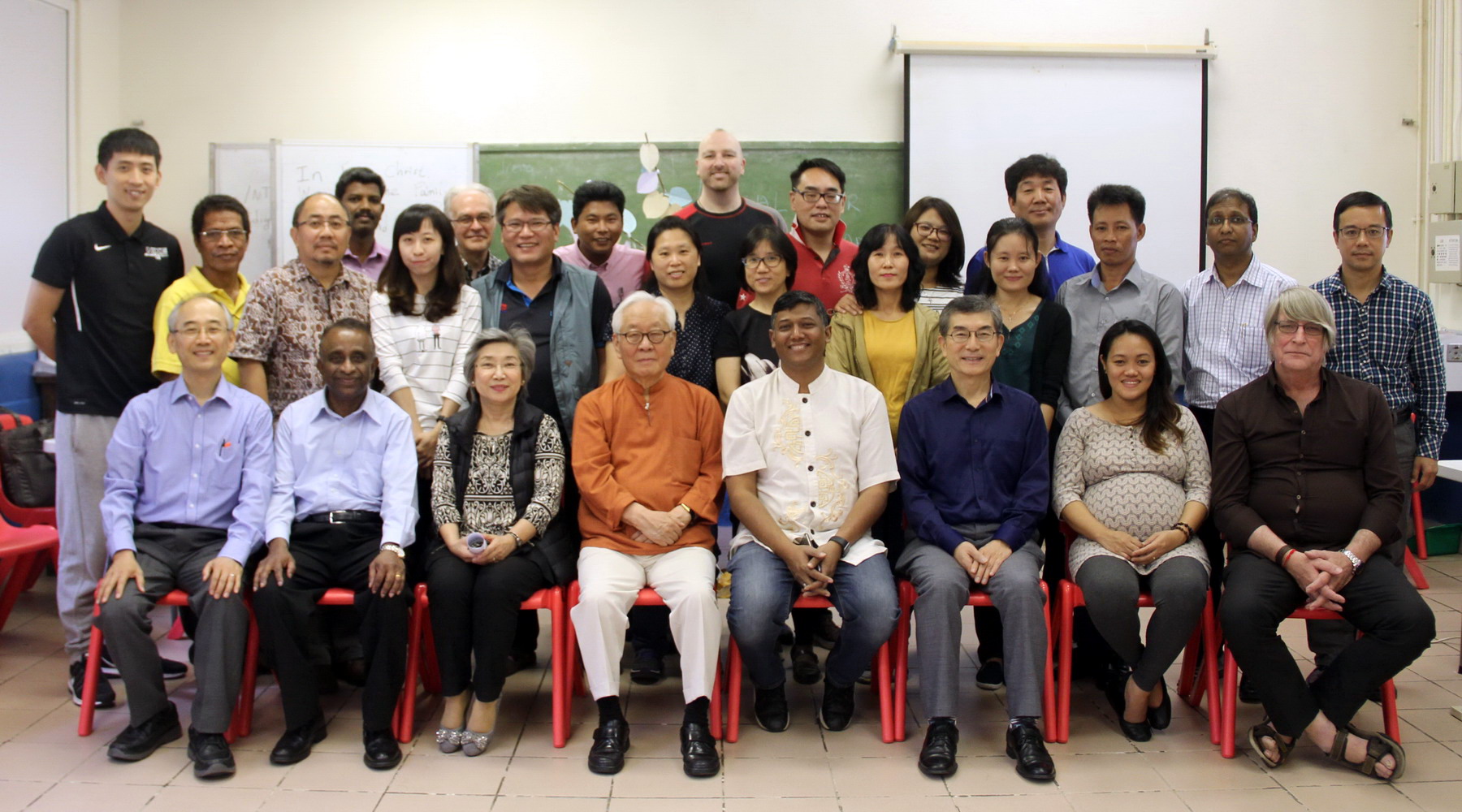 |
| ↑ The participants of the conference.
|
The entire conference was a learning experience for the delegates, especially the participants of the Advanced Studies Program.
The conference concluded with drafting a statement of the conference, with an affirmation to be responsible leaders, working proactively for social transformation according to the teachings of Christ and corresponding to Challenge 21. They also committed themselves towards developing innovative solutions conducive to peace and justice, human dignity, gender equity, and non-discrimination.
~ Duncan Chowdhury, Executive Secretary
WCC organized Ecumenical Conference in Hong Kong - Towards Peace Treaty for the Korean Peninsula
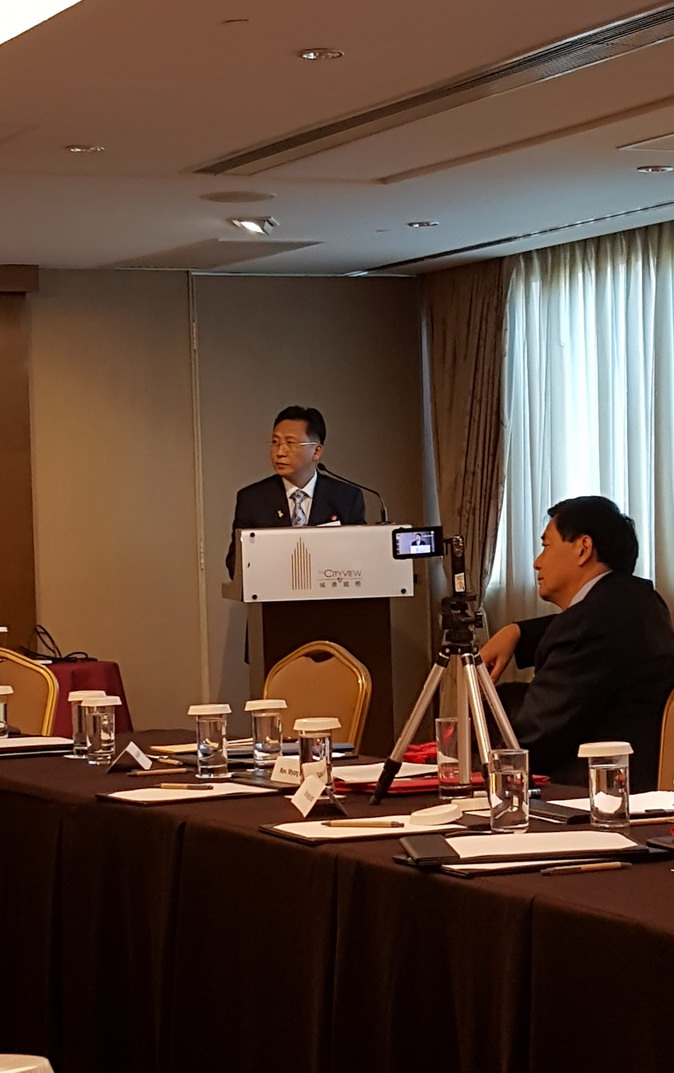 |
| ↑ Rev. Kang Myong Chol, Chairperson of Korean Christian Federation, in his opening speech.
|
International Ecumenical Conference on a Peace Treaty for the Korean Peninsula was organized by World Council of Churches, hosted by the Hong Kong Christian Council (HKCC) on 14 – 16 November in Hong Kong. 58 participants from churches and related organizations from the Democratic People’s Republic of Korea (DPRK), the Republic of Korea (South Korea) and 11 other countries gathered in Hong Kong with the purpose of promoting improved inter-Korean relations and advancing the cause of peace on the Korean peninsula. World YMCA was represented by Rev. Johan Eltvik, Secretary General of World Alliance of YMCAs, Mr Nam Boo-Won, General Secretary of APAY, and Rev. Dr. Ahn Jae-Woong, Chair of Trustee, National Council of YMCAs of Korea. The conference was built upon the long history of ecumenical engagement and accompaniment of Christians from both North and South Korea in their search for peace and reunification after more than 70 years of division. The presence of delegations from both the Korean Christian Federation (KCF) from the DPRK and the National Council of Churches in Korea (NCCK) from South Korea was pivotal to the conference and its outcomes.
The conference especially focused on the prospects and impact of a peace treaty for the Korean peninsula. It reaffirmed the WCC 10th Assembly statement, even more so today, that “it is the right time to begin a new process towards a comprehensive peace treaty that will replace the 1953 Armistice Agreement”. Ending the suspended state of war that has existed since the Armistice Agreement of 27 July 1953 is both long overdue and still critically and urgently necessary. The absence of a formal end to the Korean War still colours and obstructs inter-Korean relations today, and encourages the escalating arms race and militarization of the peninsula and region. Progress towards a peace treaty is needed now, in order to interrupt the spiralling cycle of mutual antagonism, confrontation and militarization, to reduce tensions and build trust, to ensure the withdrawal of all foreign troops from the Korean peninsula, and to promote an environment in which current issues in inter-Korean relations can be addressed and, God willing, resolved.
At the close of the two days conference, participants came up with a statement called ‘Hong Kong Communique’ in which they affirmed that “in face of the many threats and challenges to peaceful co-existence on the Korean peninsula, we say a clear and emphatic ‘NO!’ to war and to the threat of pre-emptive attack. We propose that future ecumenical initiatives with regard to the Korean peninsula be purposefully and explicitly configured so as to model and exercise leadership towards a process for a peace treaty to replace the Armistice Agreement. We invite increased ecumenical support – through prayer, advocacy, solidarity and participation – for the ongoing NCCK Peace Treaty Campaign in 2017 (in Europe) and 2018 (in Asia)”.
While revisiting the 2013 WCC 10th Assembly’s statement on peace and reunification of the Korean Peninsula, participants reaffirmed the recommendations contained in this and subsequent ecumenical policy statements concerning: promoting dialogue and creative peace-building processes; organizing ecumenical solidarity visits to churches in North and South Korea; widening ecumenical platforms for encounter between North and South Koreans, and especially for young people from both sides of the border, and so forth.
The conference took place at a time of great and unforeseen changes and heightened uncertainty on the Korean peninsula and around the world, in the immediate aftermath of the US presidential election, and during an acute political crisis in South Korea. Though the implications of these developments were still uncertain, participants recognized that they might entail both new threats to peace and new opportunities for advancing the cause of peace. They called for the reopening of the Kaesong Industrial Complex and Mt Kumgang tourism as important models for building peaceful cooperation, mutual trust and recognition. Also called for were intensified solidarity visits to the churches and Christians of North and South Korea. The participation of major global ecumenical organizations representing women and youth (World Alliance of YMCAs, World YWCA and WSCF) in the conference was very much welcomed. They also recommended closer collaboration in ensuring women and youth are better represented in future ecumenical visits and platforms. Rev. Johan Eltvik, SG of World Alliance, together with Mr. Nam Boo-Won, suggested during the conference that World YMCA was willing to organize a Peace Boat campaign on Peace Treaty with World YWCA and WCC if agreeable.
Finally, participants expressed their collective belief that “the only path to peace is the path of encounter and dialogue among people. The churches of the world and the ecumenical movement have a key capacity and responsibility in accompanying this pilgrimage”.
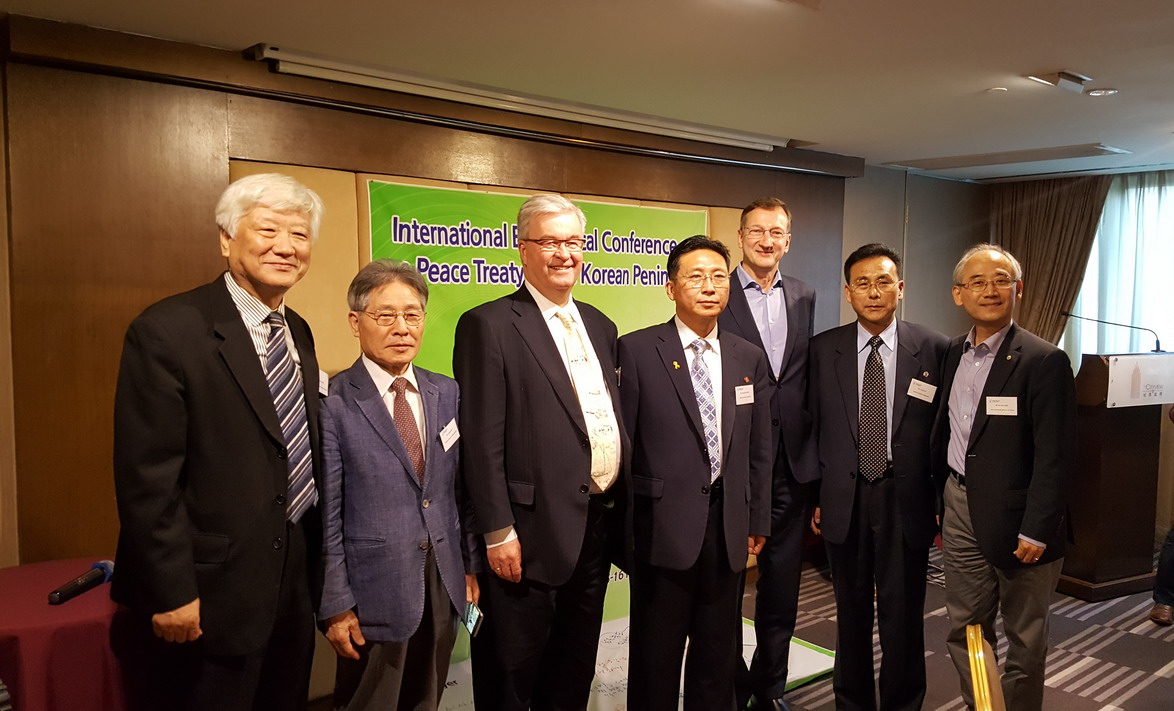 |
| ↑ YMCA delegates with participants from Korean Christian Federation, NCC-Korea and WCC.
|
76 And you, child, will be called the prophet of the Most High;
for you will go before the Lord to prepare his ways…
79 to give light to those who sit in darkness and in the shadow of death,
to guide our feet into the way of peace.
Luke 1:76, 79
~ Nam Boo Won, General Secretary
2016 National Convention of YMCA Australia:
Optimizing Mission Impact
A bi-annual YMCA National Convention was held in Adelaide, Australia on 25 – 26 November 2016 with around 200 participants from 24 local YMCAs across Australia and several overseas guests including from New Zealand YMCA. The theme of the convention was: “Optimising Mission Impact”. The Convention focused on aligning the YMCA’s belief in the power of inspired young people across all of our Associations and global YMCAs. It was about the YMCA taking a huge step collectively towards identifying itself as a powerful social movement for young people. This was echoed by the two international YMCA speakers – Mr. Peter Posner, President of World Alliance of YMCAs and Mr. Nam Boo Won, General Secretary of APAY, who reminded participants that all around the world, the YMCA is sharpening its focus on young people and YMCA as its strong legacy is a social movement for young people. Both of them spoke on “Local to Global” meaning how YMCA Australia become more globally-minded and globally-connected.
A salient feature of this year’s convention was to explore diverse youth stories which tell how young people, when inspired, become so creative, taking a bold and innovative initiatives trying to change their own lives, others and community at large. The convention also sought moments of inspiration that make a movement – moments in a young person’s life that are key turning points in their lives. Governance, particularly young people on Boards, was also emphasized with a view to optimizing our mission impact locally, nationally and globally. It also addressed the issues of safeguarding children and young people as well as nutrition and health for children and young people. A session for National YMCA Awards presentation added tastes and values to the convention.
At the AGM held on 2nd day of the convention, Mr. Andrew Smith, President of Australia YMCA was announced to step down. He reminded delegates in his final speech as President that "we in the business of social change and our business is young people". It was also announced that Mr. Christopher Lewis will assume his role as President of Australia YMCA soon after the AGM.
Overall, the two days National Convention was a bold and creative attempt to revive the YMCA as a social movement for young people and by young people. At the close of the convention, all the participants became like-minded in affirming that “we want to be THE brand for young people”.
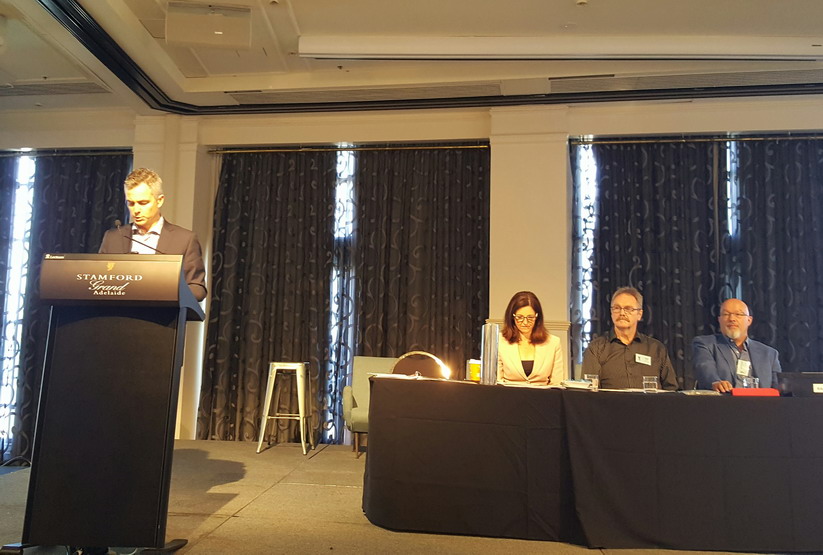 |
|
↑ Mr. Andrew Smith, National President, in his speech during the AGM.
(From right, Mr. Christopher Lewis,Newly elected President, Mr. Peter Malone, Vice President, Ms. Melinda Crole, National CEO)
|
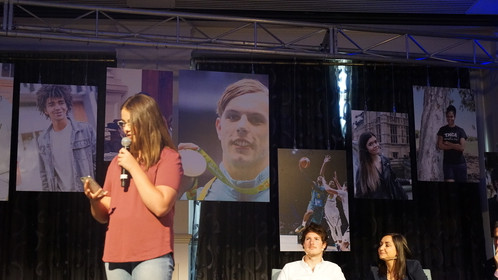 |
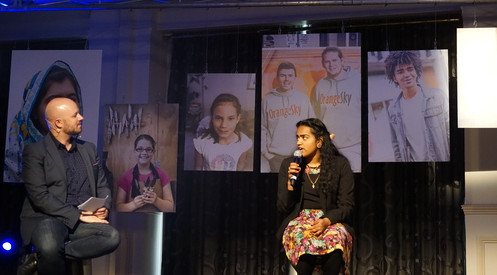 |
| ↑ Invited young leaders are sharing their life stories of inspiration with participants |
~ Nam Boo Won, General Secretary
ICF National Forum in Timor Leste Organizes
Justpeace Workshop for Youth
The staff members of Interfaith Cooperation Forum (ICF)—Max Ediger, Hem Sopharak and Bruce Van Voorhis—conducted a justpeace workshop for 20 youth between the ages of 15 and 32 that was organized by the ICF national forum in Timor-Leste. The program was held between Nov. 26 and Nov. 29 in Balibo in the western part of the country near Timor-Leste’s border with Indonesia.
The sessions of the workshop focused on conflict created by one’s identity, such as nationality, race and ethnicity, religion, etc., human rights and transformation. In addition, Jose Ramalho of Klibur Foin sa’e Tane Timor, or KFTT (Association of Young Men), based in the capital of Dili led a session on conflict resolution, and Leonardo Gamboa, a member of the Timor-Leste national forum, presented a session on leadership and faith. A highlight of the program was participating in the Independence Day celebrations in Balibo on Nov. 28—the day in 1975 that the people of Timor-Leste declared their independence from Portugal.
One reason that Balibo was chosen as the site of the workshop was because of its historical significance to the country that was particularly meaningful during the Independence Day celebrations, for Balibo was one of the first communities invaded by the Indonesian army about 10 days after Timor-Leste had declared its independence from Portugal. Moreover, five Australian TV journalists were executed by the Indonesian army just prior to the invasion to ensure that the world did not immediately learn about the invasion.
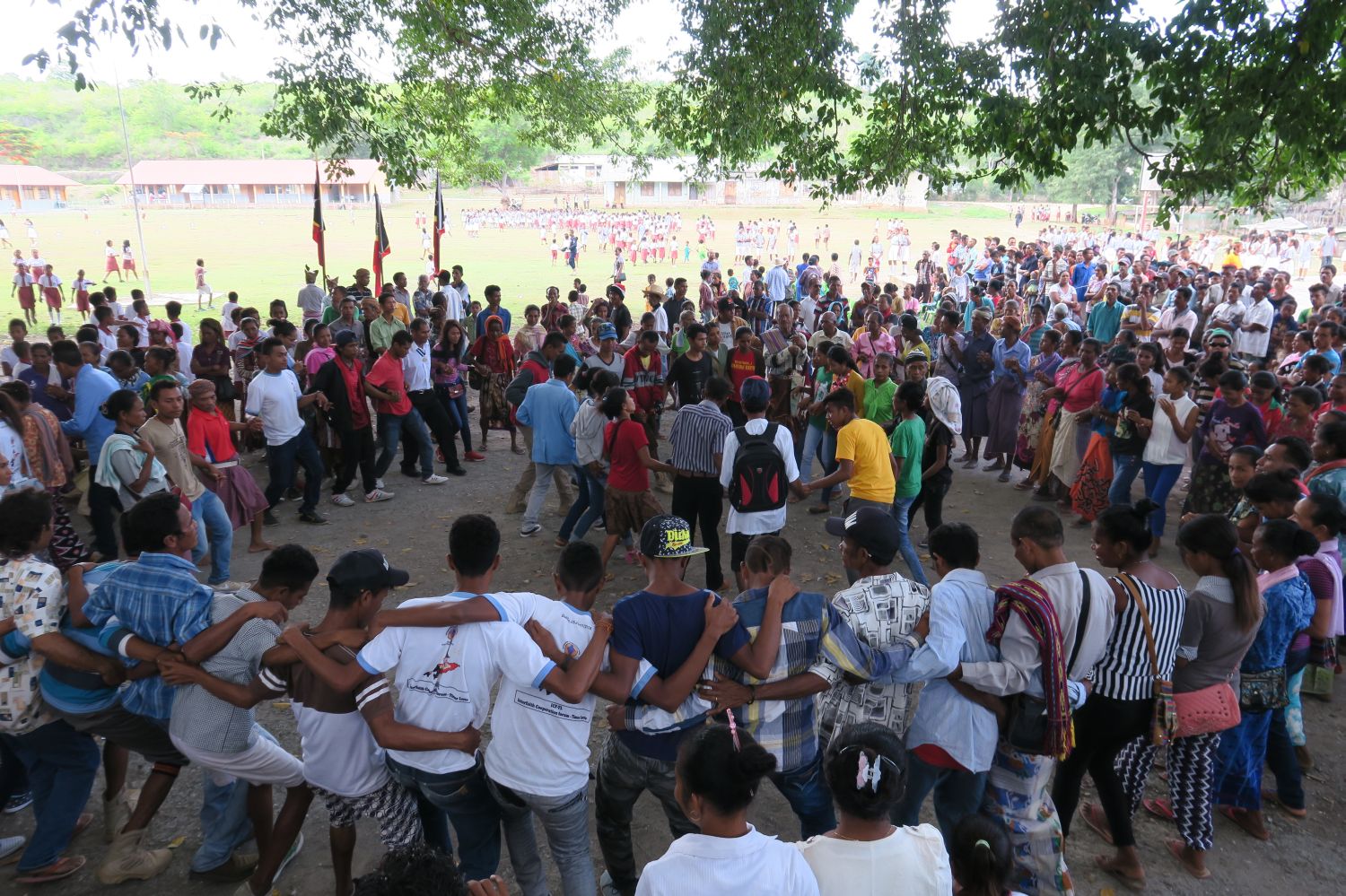 |
| ↑ Some participants (in white T-shirts in the foreground) join the local traditional dance during the Independence Day celebration on Nov 28. |
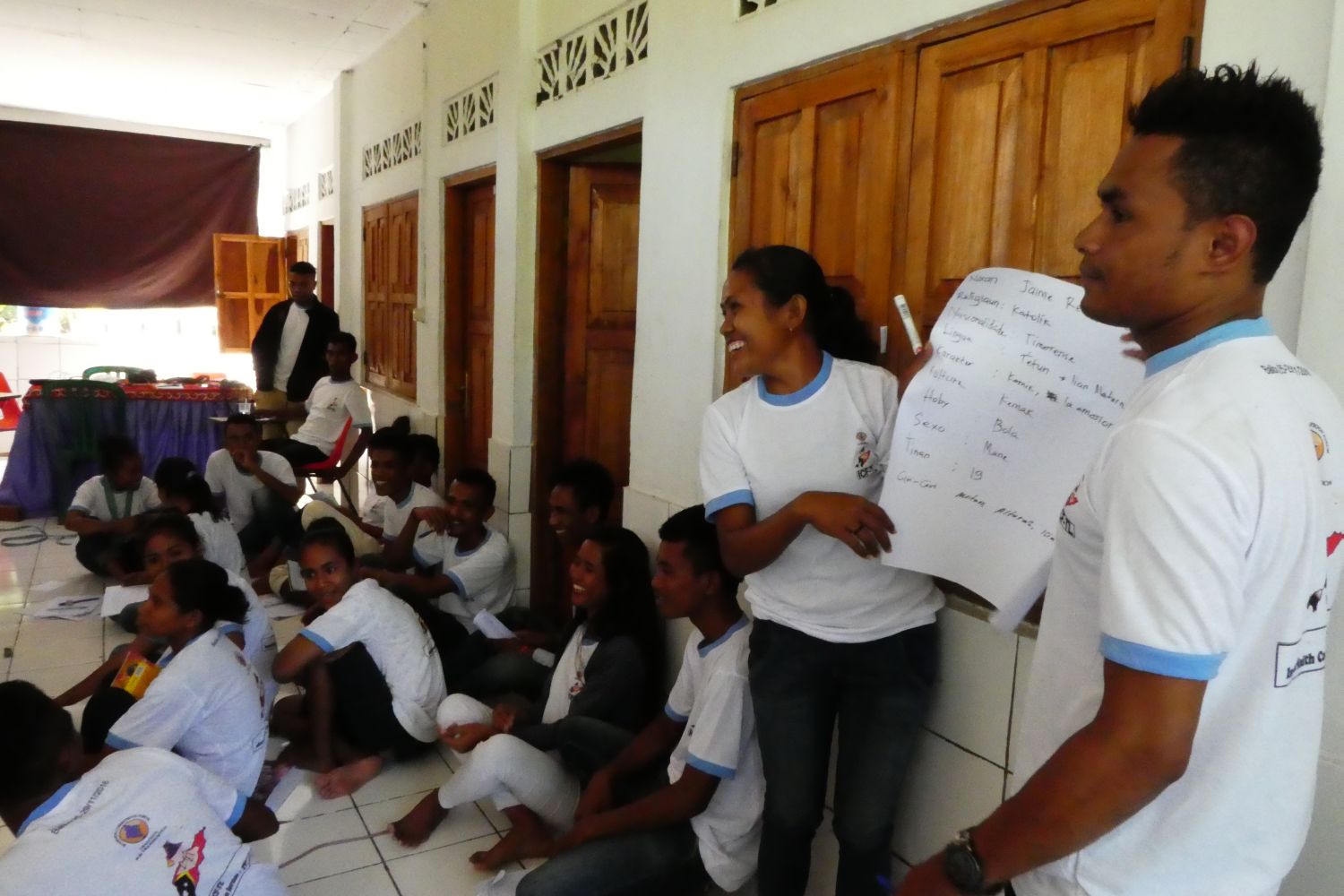 |
| ↑ Participants of the four-day workshop for youth share the conclusions of their small group. |
At the conclusion of the workshop, the members of the national forum held their annual meeting to review their activities for the past year, evaluate the just-concluded workshop and make plans for 2017.
~Bruce Van Voorhis, ICF Coordinator
YMCA New Zealand appoints new CEO
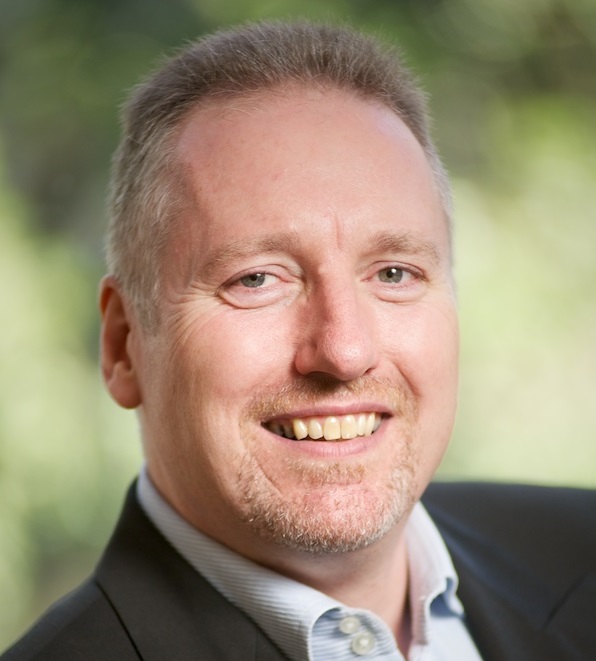 YMCA NZ announces the appointment of David Moger as the new National Chief Executive Officer effective 28 November 2016. YMCA NZ announces the appointment of David Moger as the new National Chief Executive Officer effective 28 November 2016.
Having spent the last three years in the role of Chief Executive of the RNZRSA, Moger made a major contribution as an enthusiastic ambassador for veterans and RSAs alike and was instrumental in helping recover the RNZRSA balance sheet, reorganising and modernising the National Office, implementing new IT systems and made a major contribution in setting up RNZRSA to be a modern organisation, fit for the future.
Moger will replace Acting NCEO Mrs Arama Ngāpō-Lipscombe who has provided guidance, stability and leadership for the organisation over the last 12 months. Ngāpō-Lipscombe will resume her duties as a National YMCA NZ Board member.
|
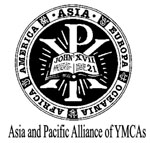



 YMCA NZ announces the appointment of David Moger as the new National Chief Executive Officer effective 28 November 2016.
YMCA NZ announces the appointment of David Moger as the new National Chief Executive Officer effective 28 November 2016.



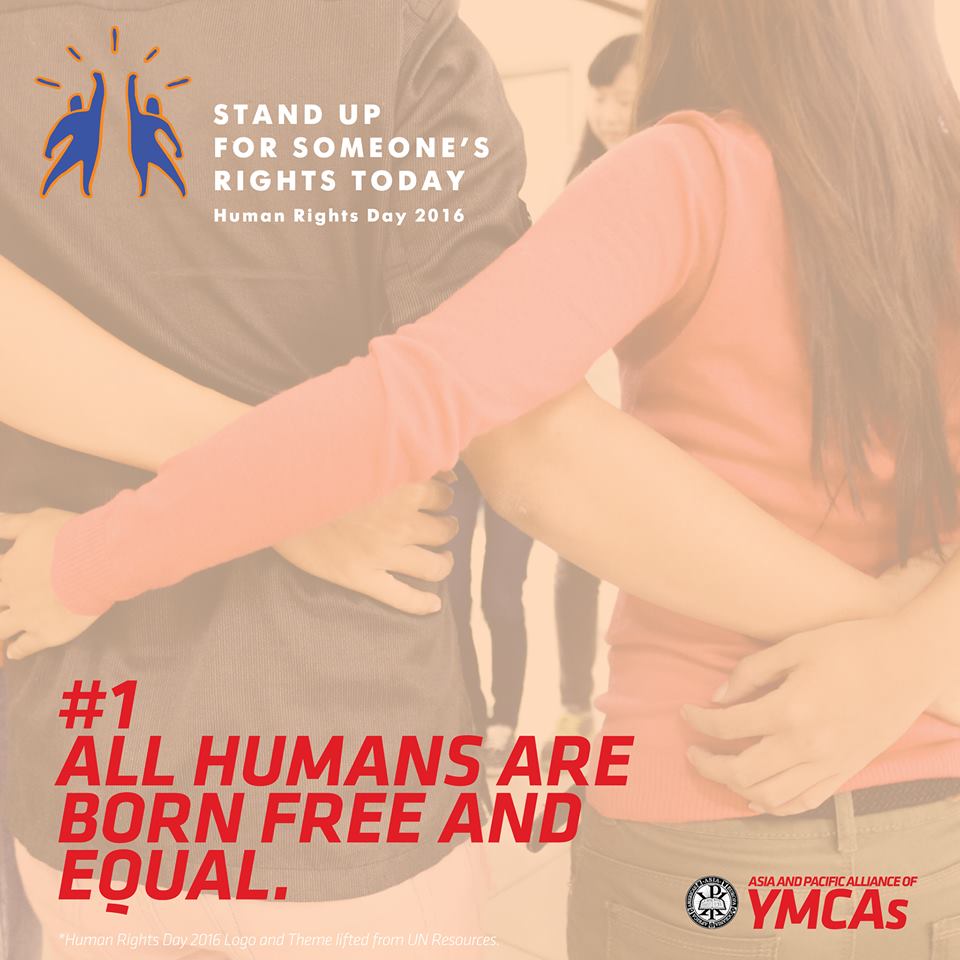 In various communities, majority of the vulnerable groups of women, migrants, youth, persons with disabilities, children, indigenous people, minority group or anyone are suffering from discrimination and violation of human rights. Worldwide, these marginalized sectors of the society form majority of those exposed to exploitation, faced to live in poverty, forced to work under arduous labor conditions, placed at greater risk in disasters and emergencies and excluded to make influences and decisions.
In various communities, majority of the vulnerable groups of women, migrants, youth, persons with disabilities, children, indigenous people, minority group or anyone are suffering from discrimination and violation of human rights. Worldwide, these marginalized sectors of the society form majority of those exposed to exploitation, faced to live in poverty, forced to work under arduous labor conditions, placed at greater risk in disasters and emergencies and excluded to make influences and decisions.